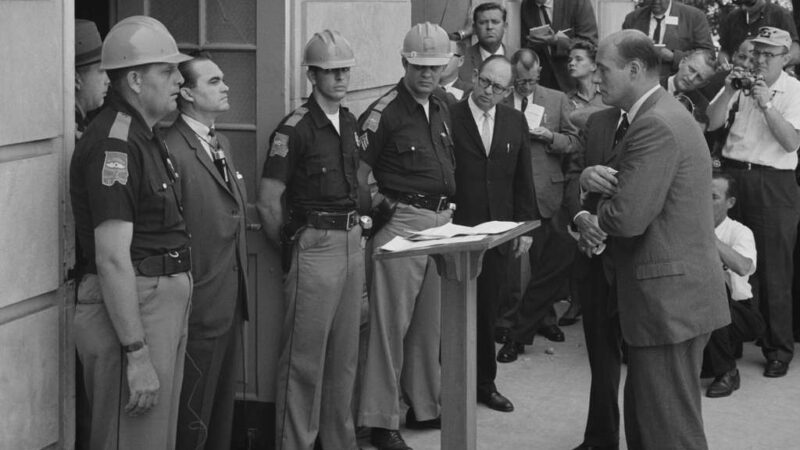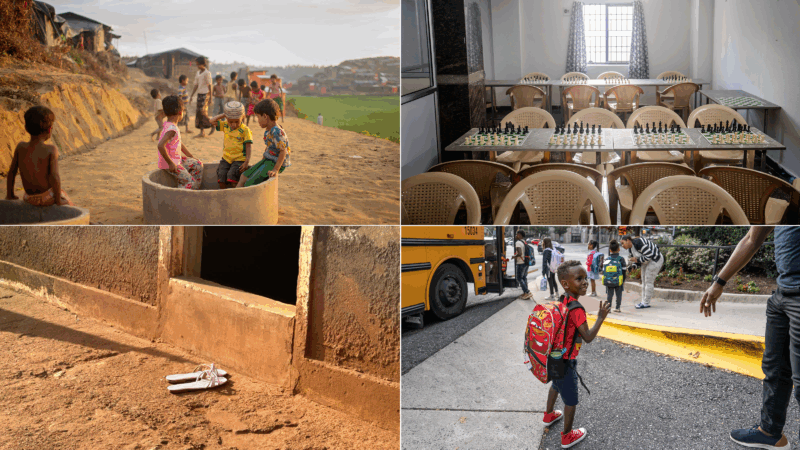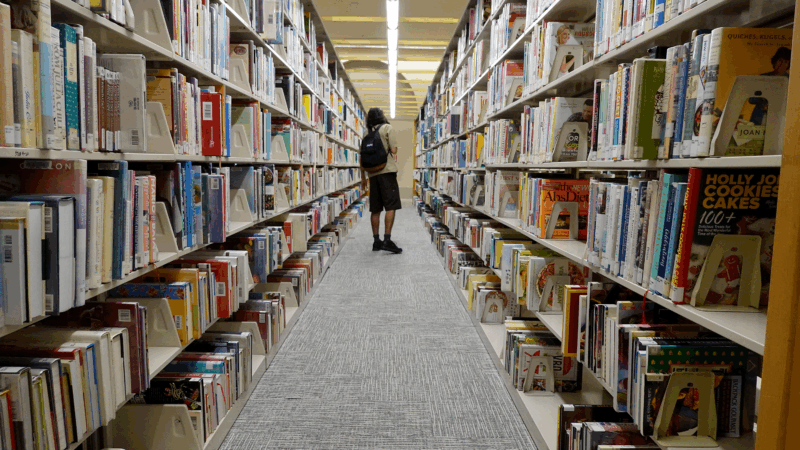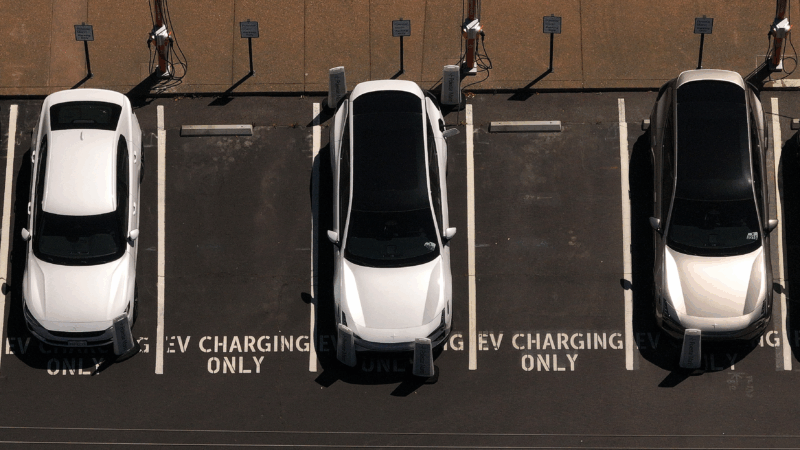ACLU and other advocates sue to block migrants from being sent to Guantánamo Bay
A coalition of immigrant rights and legal aid organizations has sued the Trump administration to try to stop the transfer of migrants from the United States to Guantánamo Bay, Cuba.
Saturday’s lawsuit does not challenge the U.S. government’s authority to detain migrants on U.S. soil, or to deport them directly to their home country or another country allowed under immigration law. Instead, the American Civil Liberties Union and its partner civil rights groups — the Center for Constitutional Rights, International Refugee Assistance Project, and ACLU of the District of Columbia — argue that it is illegal for the U.S. to first send those migrants to Guantánamo.
The suit maintains that there is no legitimate reason to do that because the government has ample detention capacity inside the United States, and because holding migrants in the U.S. is more financially and operationally practical.
The lawsuit alleges that the reason the Trump administration is sending migrants to Guantánamo is to “instill fear in the immigrant population.”
“Sending inmates to a remote abusive prison is not only illegal and unprecedented, but illogical given the additional cost and logistical complications,” Lee Gelernt, lead counsel and deputy director of the ACLU’s Immigrants’ Rights Project, said in a statement. “Ultimately this is about theatrics.”
The lawsuit was filed in the U.S. District Court for the District of Columbia on behalf of ten migrants “at imminent” risk of being transferred to Guantánamo from detention centers in Texas, Arizona and Virginia. All of the men, who are from Venezuela, Afghanistan, Pakistan and Bangladesh, are being detained pending final removal orders.
The litigation lays the groundwork for an eventual broader lawsuit that aims to block the transfer of any migrant to Guantánamo.
The Department of Homeland Security did not immediately respond to a request for comment.
Since President Donald Trump returned to office in January, his administration has sent more than 200 migrants to Guantánamo, where it has said it plans to hold them temporarily until it can find other countries to take them. The majority of those migrants were transferred to Venezuela within a few weeks, but additional migrants were later sent to Guantánamo.
Last month, the ACLU and its fellow plaintiffs filed another lawsuit against the Trump administration demanding that migrants at Guantánamo be given access to lawyers. That suit is pending.
“This lawless project to take people from U.S. soil and detain them at this notorious offshore prison must be stopped,” Kimberly Grano, a staff attorney with the International Refugee Assistance Project, said in a statement.
NPR’s Sergio Martínez-Beltrán contributed to this report.
How George Wallace and Bull Connor set the stage for Alabama’s sky-high electric rates
After his notorious stand in the schoolhouse door, Wallace needed a new target. He found it in Alabama Power.
FIFA president defends World Cup ticket prices, saying demand is hitting records
The FIFA President addressed outrage over ticket prices for the World Cup by pointing to record demand and reiterating that most of the proceeds will help support soccer around the world.
From chess to a medical mystery: Great global reads from 2025 you may have missed
We published hundreds of stories on global health and development each year. Some are ... alas ... a bit underappreciated by readers. We've asked our staff for their favorite overlooked posts of 2025.
The U.S. offers Ukraine a 15-year security guarantee for now, Zelenskyy says
Ukrainian President Volodymyr Zelenskyy said Monday the United States is offering his country security guarantees for a period of 15 years as part of a proposed peace plan.
Genre fiction and female authors top U.S. libraries’ most-borrowed lists in 2025
All of the top 10 books borrowed through the public library app Libby were written by women. And Kristin Hannah's The Women was the top checkout in many library systems around the country.
Electric vehicles had a bumpy road in 2025 — and one pleasant surprise
A suite of pro-EV federal policies have been reversed. Well-known vehicles have been discontinued. Sales plummeted. But interest is holding steady.








